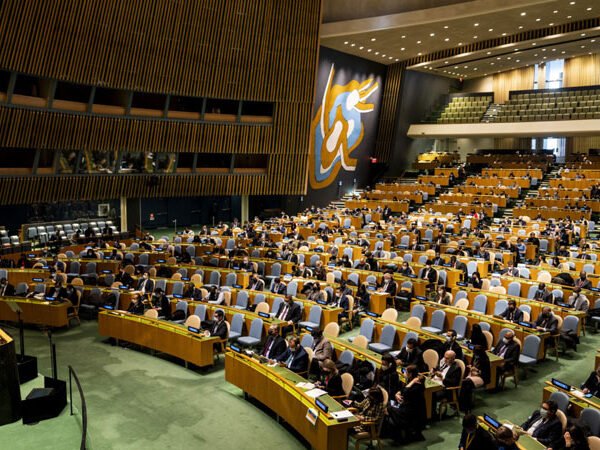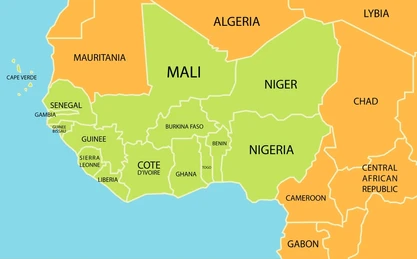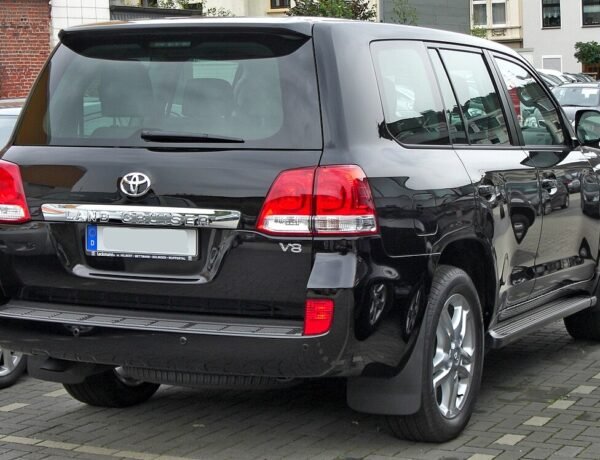Introduction:
The imposition of tariffs by President Trump has generated debates and commentaries among politicians, diplomats, economists and governments over the world, including Ghanaians, about the adverse socio-economic and political hardships the policy seeks to wreak on the nation of Ghana. While tariffs are century-old strategy implemented by governments, especially western states, to satisfy their narrow political interests as evidenced by Trump, the citizens of the imposing-state bear the real consequences because tariffs are disguised taxes. With globalisation aided by rapid technological advancement, the world’s economy which is intricately linked might be severely affected by the erratic Trump’s tariffs, as evidenced by tumbled stock prices, hiked prices of goods and services and disjointed logistical systems. However, the doctrine of state sovereignty, irrespective of globalisation and all the acclaimed benefits of technological advancements, affords serious and strategic states the leeway to evade the adverse effects of tariff as to secure the wellbeing of their peoples. With that, this post critiques some arguments traded by Ghanaian commentators, accusing Trump as being erratic; while Ghana idles by in the midst of abundant resources which could have been harnessed to stave off the impacts of the tariff without moaning.
Ghanaians on Trump’s Tariffs
Among the arguments bemoaning Trump’s twelve (12) percent tariff against Ghana, the one by Kwesi Pratt Jnr, a renowned, seasoned Journalist and patriotic Ghanaian, on Saturday 12th April 2025 on the Alhaji & Alhaji talk show, that Ghana has the opportunity to leverage her position to throw out the United States of America (USA)’s military base at terminal one (1) of Kotoka International Airport, was very amusing in the view of this post for the reasons stated below:
(a) Ghana, in her current state of affairs, cannot retaliate against the USA in any concrete terms because it is riddled with debt and cannot even mobilise adequate food items and provisions to feed the nation. And as often cited by Kwesi Pratt Jnr himself, that Ghana could barely mobilise revenue for three-line items- state employee emoluments, debt servicing and government business. The humble question is how could a nation-state in such a miserable and hapless position gather/muster the courage to threaten the US? Uncle Pratt, that is not going to happen because politically Ghana is weaker; economically pauper with empty coffers and socially destitute begging for alms to survive. In the wisdom of international relations and politics, no state in such deplorable states can institute sanctions against a powerful state, like the USA, simple.
(b On the domestic front, Ghana is industrially atrophic because of her incapacity to cater for the basic and essential needs of the people and a failure to create business incubations at the regional and community levels to serve as strategic platforms upon which to industrialise the country with reliance on domestic raw materials. The absence of such initiatives, coupled with limited state -university partnerships to undertake research to drive national growth, weaken Ghana’s ability to retaliate against the USA. At sixty-eight years of independence with bounteous raw materials, Ghana has brazenly failed to carve economic niche for herself within the sub-region or at the continental front. Her position as the leading producer of cocoa has been relinquished to Cote d’ Ivoire (Ivory-Coast) for many years. So, how could she stand up to Trump’ s America. The underlying factor is that poor leadership, characterised by reactionary thinking at home and across the region of Africa continue to deepen Ghana and Africa’s weak positioning on the region and in the world.
As characteristic of their reactionary status, Ghana and the African continent as a whole, lack the ability to think strategically in crafting novel policies and plans to enhance the socio-economic and political fortunes of their peoples. This is because, with the exception of the late Dr Kwamen Nkrumah and Ignatius Kutu Acheampong, who led exemplarily by implementing domestic schemes to buoyed the welfare of Ghanaians and the state; successive Ghanaian political leaderships, hardly frame solutions to address the needs of the people. Rather, they rely on quick-fit measures; namely: borrowing from foreign/external sources at exorbitant rates without utilising them for substantive national development. It is frustrating that Ghana continues to moan and blame external sources – USA, International Monetary Fund (IMF) and World Bank (WB) for her troubles in the midst of countless resources. which majority of states in the world do not have a fraction of.
In the midst of Abundance Ghana Moans Trump’s Tariff
By way of digression, a recent discussion on Accra FM 105 by some panellists, suggested strategies to promote the NDC’s “Feed Ghana Agenda” as an alternative to reduce the nation’s reliance on foreign goods. One of the panellists stated that some Ghanaian farmers should be should sent to China to learn about methods of improving high cocoa yield and strategies of drying the cocoa beans. That thinking is problematic and unsustainable because as a leading cocoa producer for many years, how could Ghana be seeking expertise from China to improve her cocoa yield without developing local knowledge from domestic universities and related agricultural institutions. Interestingly, China’s acquisition of cocoa has been allegedly linked with fraudulent connivance of some Ghanaians and state officials over the years. So, classically, without looking inward to develop domestic expertise to promote a cash-crop Ghana has had over many years, is it any wonder that external threats such as Trump’s tariff would derail the economy? Without a conscious and aggressive determination to develop domestic expertise, knowledge and skills to harness local raw materials to create competitive edge in the regional and global markets, Ghana will remain weaker to stand up to Trump’s tariffs. Ghana has numerous resources, spanning minerals, food items, cash crops and biodiversity resources; however, without creative, forwarding-thinking leadership, Ghana will struggle at the least external shock, reflecting her lousy and unpreparedness to match with the times.
Final Remarks
Sixty-eight years of independence can no longer be characterised as a young country while Ghanaians working in state institutions retire at sixty years of age. States like Singapore, Malaysia and South Korea and other Asian states are in Ghana’s age bracket, yet have developed domestic expertise which make them self-sustaining and capable to thrive with little reliance on foreign states and erratic threats like Trump’s tariffs. In the midst of Ghana’s bounteous resources coupled with cultivable lands, she should not moan tariffs but leverage her bounteous resources to promote and protect the people’s welfare and national growth.




